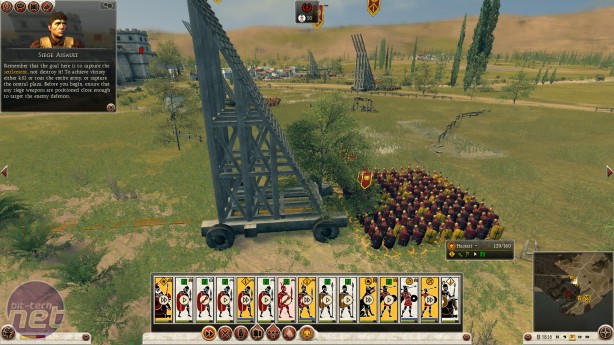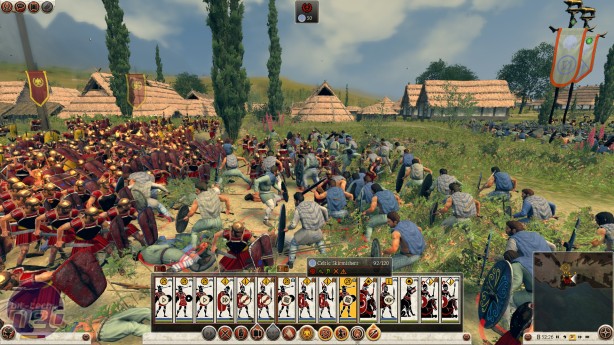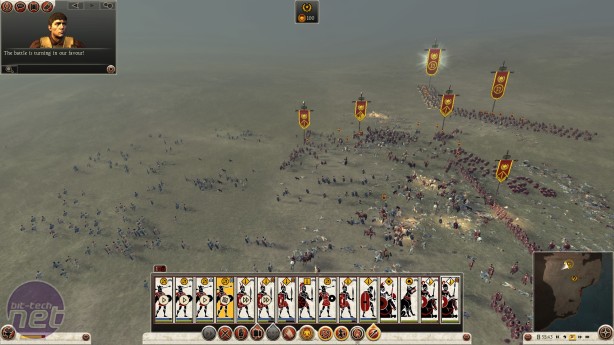
Rome II Review
In previous Total War games, regions had a single major city, control of which also gained the player dominion over that region. Now, regions are made up of several cities, and you need to hold them all in order to have control over the region. Having multiple cities in a single region affects the game in several ways. Firstly, you can specialise cities for specific tasks. Playing as the Romans (which is how we played the majority of the game, with a skirmish or two as other factions) if you have a city with a port, building a shrine to Neptune will increase the economic benefits of that port. Similarly, if you have a barracks, building a training field will give all soldiers recruited there combat bonuses.Multiple cities in a region also affects military campaigns. If a region has its cities controlled by several vying factions, this causes a drop in public order, as does the initial conquering of a city. Low public order affects growth and the likelihood of rebellion. Hence, the ravages of war are much more evident in individual regions. A region that is constantly being tussled over is going to be harder and harder to control and make economically viable, so it's important to try to keep regions as stable as possible, manage their cultural conversion by converting buildings, and defend cities by guarding roadways rather than performing tit-for-tat Sieges.
Mercifully, it's far easier to keep an eye on city traits like public order thanks to the new UI, as it represents these aspects numerically rather than with icons. So it's much easier to predict how public order will be affected by moving an army in or out of a region, or constructing a new building. Similarly, the buildings of all cities in a region are available at a glance, alongside how much food they are producing, what culture they ascribe to, whether they're ready to expanded, and so forth.
Layered on top of the economic and military strategy is a brand new political system that involves the leaders of your armies and your state. Basically, each major faction is comprised of various "families", one of whom you control, who vie for power through a combination of Gravitas and Ambition. These two pools of points affect a politician’s popularity, capability of influence in politics, and their desire to climb the political ladder. A General with high Gravitas can be promoted to a position of political power, but if he becomes too ambitious, he might try to seize control of the faction entirely, which may result in civil war. This can be assuaged by spreading false rumours, or simply assassinating him.
It's a neat system, adding a sprinkling of Crusader Kings to the game, but it feels a little disconnected from the more familiar features of the Total War series, certainly in the early stages. Generally Rome II excels at informing you when you've forgotten to do something, such as upgrade a General or research a new technology. But it doesn't let you know about the random events that can occur within the political system, such as a family member dabbling in surgery and letting the body count get out of control, resulting in a potential scandal which you have to resolve. It is supposed to be a background feature, rather than the forefront, but it is currently just a little too obfuscated for its own good.
There's so much else we haven't even got close to covering, such as how all Agents can now perform Assassinations, that's spies, diplomats, and the new agent the Champion, who basically wanders around the map challenging people to single combat, training your troops, single-handedly stopping entire armies in their tracks, and generally being a total, definitive badass.

MSI MPG Velox 100R Chassis Review
October 14 2021 | 15:04













Want to comment? Please log in.